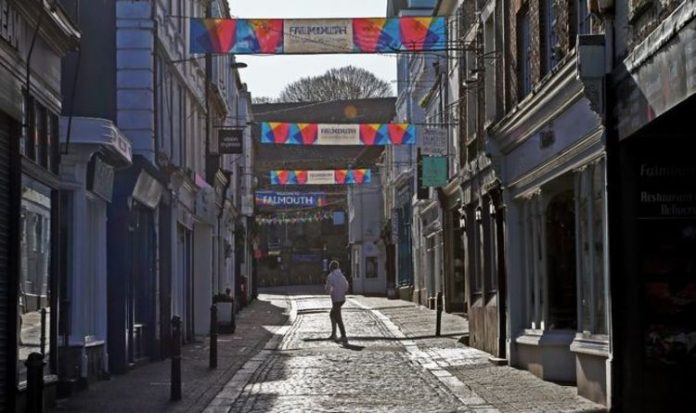Lockdown has begun again in England for the second time this year, as COVID cases keep rising despite the slew of regional restrictions in place. Boris Johnson announced the second lockdown on Saturday, which will take place from November 5 to December 2.
MP’s voted overwhelmingly in favour of the new restrictions on Wednesday, which came into effect at midnight on November 5.
The lockdown follows a similar move made by the Welsh Government, which has put Wales under a two-week circuit breaker lockdown, in place until November 9.
Residents in England will now only be able to leave their homes for essential reasons such as work or school and shopping for essential goods.
Non-essential retail and much of the hospitality sector has been forced to close under new restrictions, but unlike the first lockdown, schools and nurseries remain open.
What can I leave home for?
▪ To go to work/school/volunteering
▪ Take exercise or visit a public outdoor space, although you must only do this alone or with members of your household
▪ Essential shopping for food and medication
▪ Medical needs, such as doctors appointments or to care for someone in your support bubble
▪ To pick up or drop off your children at their other parent’s house if you have shared custody
▪ To pick up or drop off a child at childcare
▪ To attend a socially distanced Remembrance Sunday event
▪ To attend a place of worship, but only for individual prayer or for a funeral
▪ To attend a wedding, but the only weddings currently allowed to take place are for the terminally ill
▪ To complete activities related to buying or selling a house
▪ To attend a death bed visit
▪ To take your pet to the vet
▪ To take items to a tip or recycling centre
▪ To visit a close family member or friend in prison
DON’T MISS
Coronavirus cases: Did Eat Out to Help Out cause the second wave? [INSIGHT]
Which European countries are in lockdown? Full list [EXPLAINER]
Supermarket rules in second lockdown: What are the stockpiling rules? [ANALYSIS]
The Prime Minister justified the move in the commons this week, despite having repeatedly ruled out the need for a national lockdown over recent months.
He said: “The extraordinary efforts being made by millions of people across the country especially by those in very high alert areas have made a real difference, suppressing the R rate below where it would otherwise have been.
“But the R is still above one in every part of England as it is across much of Europe and the virus is spreading even faster than the reasonable worst-case scenario.
“There are already more COVID patients in some hospitals now than at the height of the first wave, 2,000 more this Sunday than last Sunday.
“While the prevalence of the virus is worse in parts of the North, the doubling time in the South East and the Midlands is now faster than in the North West.
“Even in the South West, where incidence remains low, current projections mean they will start to run out of hospital capacity in a matter of weeks.
“And the modelling presented by our scientists suggests that without action, we could see up to twice as many deaths over the winter as we saw in the first wave.
“Faced with these latest figures, there is no alternative but to take further action at a national level.
“I believe it was right to try every possible option to get this virus under control at a local level, with strong local action and strong local leadership.”







